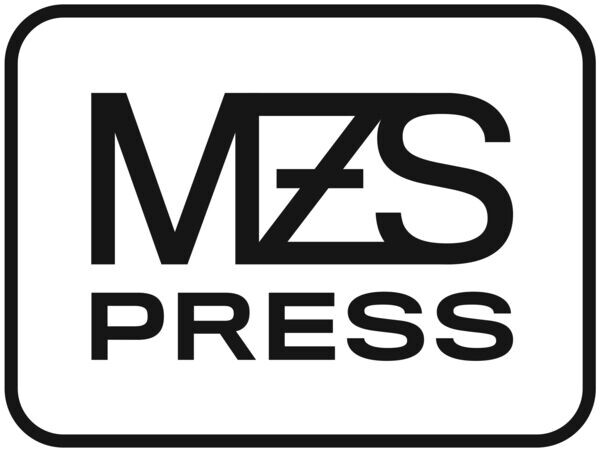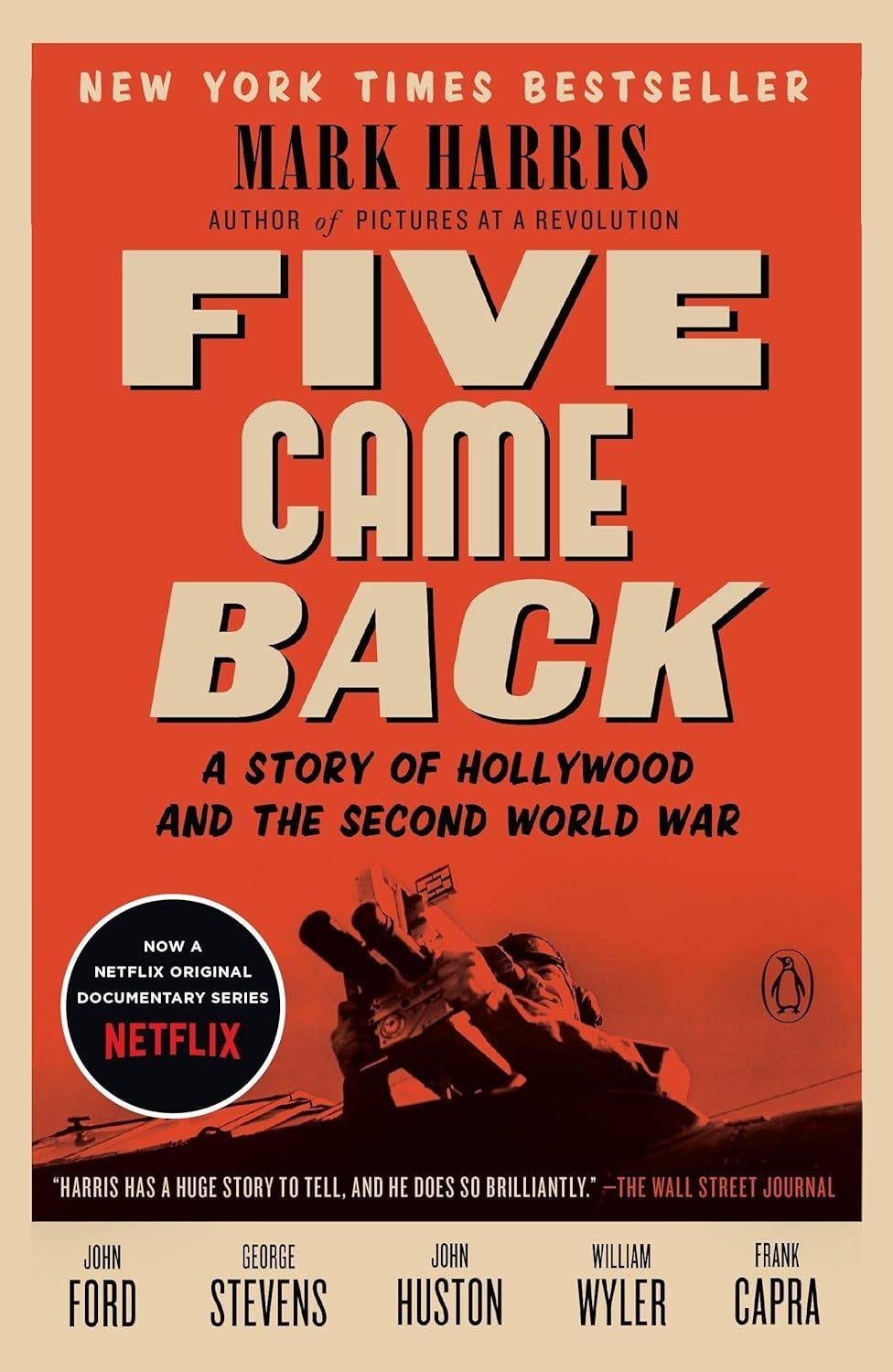

The Arts Bookstore of the Internet
Created by Matt Zoller Seitz
Directed by Judith Carter
“If you only read the books that everyone else is reading, you can only think what everyone else is thinking.”
Haruki Murakami
Photo courtesy Getty Images via Unsplash
Five Came Back (Paperback, NEW)
The extraordinary wartime experience of five of Hollywood's most legendary directors, all of whom put their stamp on World War II and were changed forever by it
In Pictures at a Revolution, Mark Harris turned the story of the five movies nominated for Best Picture in 1967 into a landmark work of cultural history about the transformation of an art form and the larger social shift it signified. In Five Came Back, he gives us something even more remarkable: the untold story of how Hollywood changed World War II, and how World War II changed Hollywood, through the director’s lens.
It is little remembered now, but in prewar America, Hollywood’s relationship with Washington was decidedly tense. Investigations into corruption and racketeering were multiplying, and hanging in the air was the insinuation that the business was too foreign, too Jewish, too “un-American” in its values and causes. Could an industry with such a powerful influence on America’s collective mindset really be left in the hands of this crew?
When war came, the propaganda effort to win the hearts and minds of American soldiers and civilians was absolutely vital. Nothing else had the power of film to educate and inspire. But the government was not remotely equipped to harness it—so FDR and the military had little choice but to turn to Hollywood for help. In an unprecedented move, the whole business was farmed out to a handful of Hollywood’s most acclaimed film directors, accompanied by a creative freedom over film-making in combat zones that no one had ever had before or would ever have again.
The effort was dominated by five directing legends: John Ford, William Wyler, John Huston, Frank Capra, and George Stevens. They were complicated, competitive men, gifted and flawed in equal measure, and they didn’t always get along, with each other or with their military supervisors. But between them they were on the scene of almost every major moment of America’s war and in every branch of service—army, navy, and air force, Atlantic and Pacific; from Midway to North Africa; from Normandy to the fall of Paris and the liberation of the Nazi death camps. In the end, though none of them emerged unscarred, they produced a body of work that was essential to how Americans perceived the war, and still do.
The product of five years of original archival research, Five Came Back is an epic achievement, providing a revelatory new understanding of Hollywood’s role in the war through the life and work of five men who chose to go, and who came back.
REVIEWS
“Mr. Harris has a huge story to tell, and he does so brilliantly, maintaining suspense in a narrative whose basic outcome will be known ahead of time. Five Came Back is packed with true stories that, according to the proverb, are stranger than fiction. Mr. Harris's story of five particular directors at one particular moment of history tells us much about the motion-picture industry, about the nature of filmmaking and, more generally, about the relation of art to the larger demands of society. Although Five Came Back at first seems to be chronicling a collective enterprise, it turns out to be an inspirational, if cautionary, tale of the triumph of the individual over the collective, of personal vision over groupthink, and ultimately of art over propaganda.”--The Wall Street Journal
“A tough-minded, information-packed and irresistibly readable work of movie-minded cultural criticism. Like the best World War II films, it highlights marquee names in a familiar plot to explore some serious issues: the human cost of military service, the hypnotic power of cinema and the tension between artistic integrity and the exigencies of war.”--The New York Times
- Publisher : Penguin Books; Reprint edition (February 24, 2015)
- Language : English
- Paperback : 560 pages
- ISBN-10 : 0143126830
- ISBN-13 : 978-0143126836
- Item Weight : 1.11 pounds
- Dimensions : 8.4 x 5.5 x 1.4 inches
About Our Store
MZS.Press is the online arts bookstore founded by author, critic, and filmmaker Matt Zoller Seitz and Directed by Judith Carter. It offers new, used, signed, collectible, and rare books on film, TV, music, photography, and the visual arts. The store was launched in 2019 on a different platform and has expanded to incorporate arts books published by MZSPress's private imprint: titles currently include Seitz's The Deadwood Bible: A Lie Agreed Upon and Dreams of Deadwood, about the HBO Western, and Walter Chaw's A Walter Hill Film.
Our deepest wish is to promote, encourage, and distribute work by small presses, academic presses, and individuals. Extraordinary work tends to get swallowed up on giant platforms like Amazon and Barnes & Noble. The titles featured here are personally selected by a group of curators and advisors, including Seitz and an array of critics, artists, journalists, educators, publishers, and arts mavens who are known for their ability to suss out what Seitz's jazz musician dad liked to call "the good sh*t."
In Honor of the greatest auteur of our time, Judith is using one of her favorite quotes by him.
"Every day, once a day, give yourself a present"
David Lynch (January 20, 1946-January 15, 2025)

About the Partners

Matt Zoller Seitz
Critic, Author, Filmmaker, MZS Press Creator
Matt Zoller Seitz is the Editor at Large and film critic of RogerEbert.com; Features Writer for New York Magazine and Vulture.com, Contributing Writer for D Magazine and Texas Highways as well as finalist for the Pulitzer Prize in criticism. His writing on film and TV has appeared in Sight and Sound, The New York Times, Salon.com, The New Republic and Rolling Stone. Seitz is the founder and original editor of the influential film blog The House Next Door, now a part of Slant Magazine.
Seitz has written, narrated, edited or produced over a hundred hours’ worth of video essays about cinema history and style for The Museum of the Moving Image, Salon.com and Vulture, among other outlets such as Texas Highways and AARP. His five-part 2009 video essay Wes Anderson: The Substance of Style was spun off into the hardcover book The Wes Anderson Collection. This book and its follow-up, The Wes Anderson Collection: Grand Budapest Hotel were New York Times bestsellers.
Other Seitz books include the New York Times bestsellers The Sopranos Sessions and Mad Men Carousel; TV (The Book), The Deadwood Bible: A Lie Agreed Upon, The Wes Anderson Collection: The French Dispatch and the new The Wes Anderson Collection: Asteroid City. He is also an interviewer, moderator, and film programmer who has curated and hosted film and TV presentations for the Museum of the Moving Image, IFC Center, San Francisco's Roxie Cinema, and other venues. In October 2024 he brought the legendary filmmaker Oliver Stone back to Dallas for a historic return to the city and the Texas Theatre, considered the biggest film event of Dallas in 2024 by Dallas Observer!
Judith Carter was in the Upscale and Luxury Hospitality Industry for most of her life. In 2004 she had a beautiful baby boy with Special Needs and put the pause on her career until 2017 to dedicate herself to him and then others, assisting and volunteering as a legal advocate ensuring the best medical care, evaluations and educations for Special Needs children and their families.
Matt and Judith were family friends for over 20 years. She was there with her family in support when his wife Jen passed away suddenly in 2006. Then just 6 weeks later while Matt was in Dallas; he and his Father, Dave, and Step-Mother, Genie, were there as support, when Judith was alone and her son received the first of many diagnoses that changed the trajectory of their lives. So it made sense in the turbulent year of 2020, Matt asked Judith to take over running the online store that has become MZS.press. The rest as they say is, "Their"-story.
